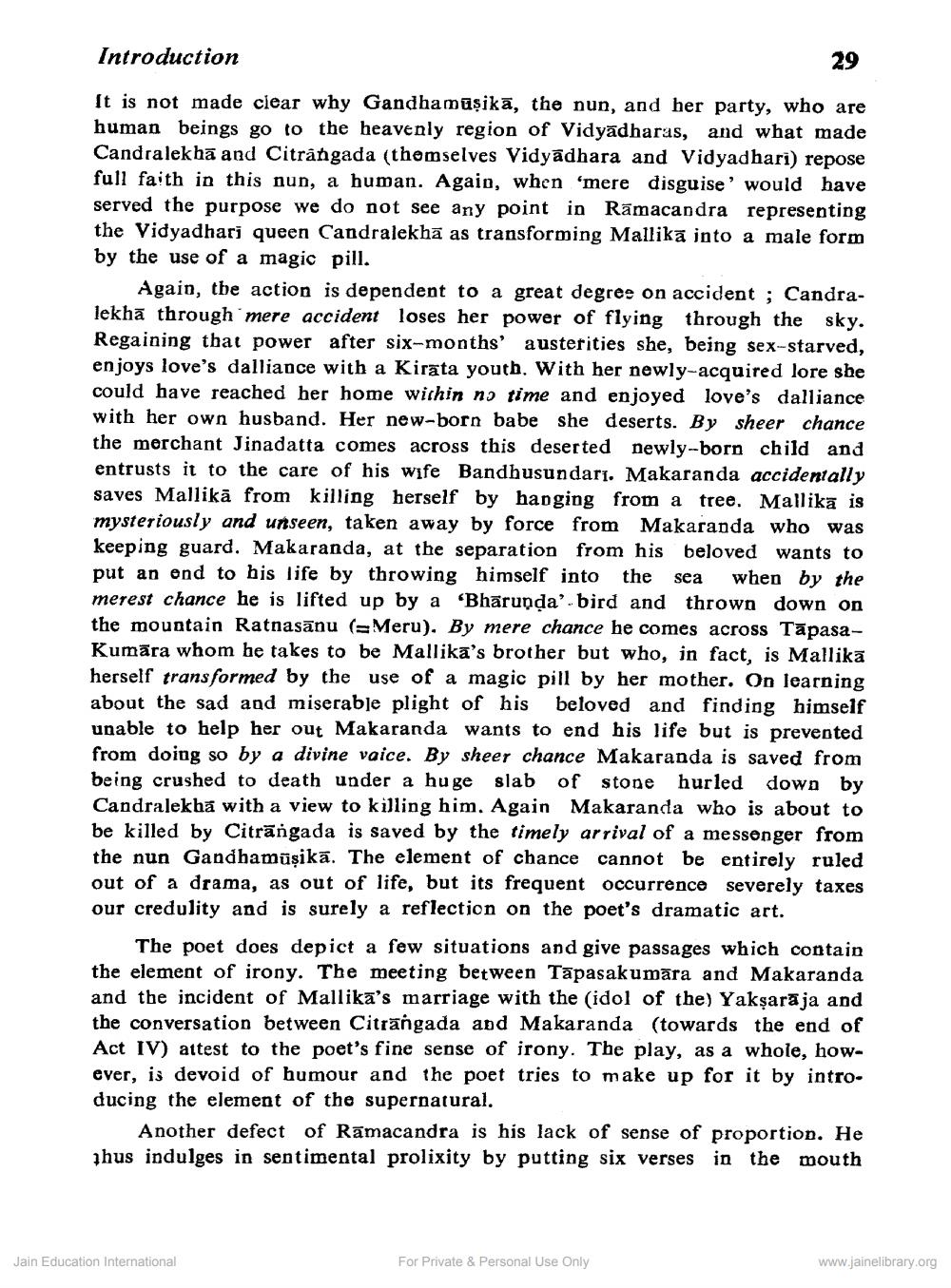________________
Introduction
It is not made clear why Gandhamūşikā, the nun, and her party, who are human beings go to the heavenly region of Vidyādharas, and what made Candralekhā and Citrangada (themselves Vidyādhara and Vidyadhari) repose full faith in this nun, a human. Again, when 'mere disguise' would have served the purpose we do not see any point in Ramacandra representing the Vidyadhari queen Candralekha as transforming Mallika into a male form by the use of a magic pill.
Again, the action is dependent to a great degree on accident ; Candralekha through mere accident loses her power of flying through the sky. Regaining that power after six-months' austerities she, being sex-starved, enjoys love's dalliance with a Kirata youth. With her newly-acquired lore she could have reached her home within no time and enjoyed love's dalliance with her own husband. Her new-born babe she deserts. By sheer chance the merchant Jinadatta comes across this deserted newly-born child and entrusts it to the care of his wife Bandhusundari. Makaranda accidentally saves Mallikā from killing herself by hanging from a tree. Mallika is mysteriously and unseen, taken away by force from Makaranda who was keeping guard. Makaranda, at the separation from his beloved wants to put an end to his life by throwing himself into the sea when by the merest chance he is lifted up by a 'Bhārunda'bird and thrown down on the mountain Ratnasānu (=Meru). By mere chance he comes across TāpasaKumāra whom he takes to be Mallika's brother but who, in fact, is Mallika herself transformed by the use of a magic pill by her mother. On learning about the sad and miserable plight of his beloved and finding himself unable to help her out Makaranda wants to end his life but is prevented from doing so by a divine vaice. By sheer chance Makaranda is saved from being crushed to death under a huge slab of stone hurled down by Candralekha with a view to killing him. Again Makaranda who is about to be killed by Citrāngada is saved by the timely arrival of a messenger from the nun Gandhamūşikā. The element of chance cannot be entirely ruled out of a drama, as out of life, but its frequent occurrence severely taxes our credulity and is surely a reflection on the poet's dramatic art.
The poet does depict a few situations and give passages which contain the element of irony. The meeting between Tāpasakumāra and Makaranda and the incident of Mallika's marriage with the (idol of the) Yakşarā ja and the conversation between Citrangada and Makaranda (towards the end of Act IV) attest to the poet's fine sense of irony. The play, as a whole, however, is devoid of humour and the poet tries to make up for it by introducing the element of the supernatural.
Another defect of Rāmacandra is his lack of sense of proportion. He jhus indulges in sentimental prolixity by putting six verses in the mouth
Jain Education International
For Private & Personal Use Only
www.jainelibrary.org




